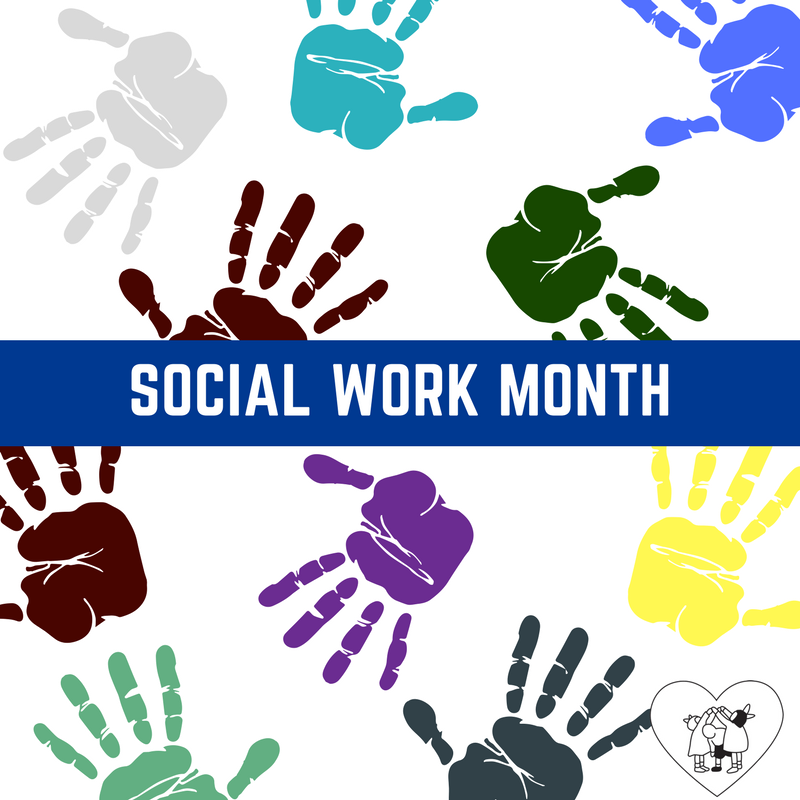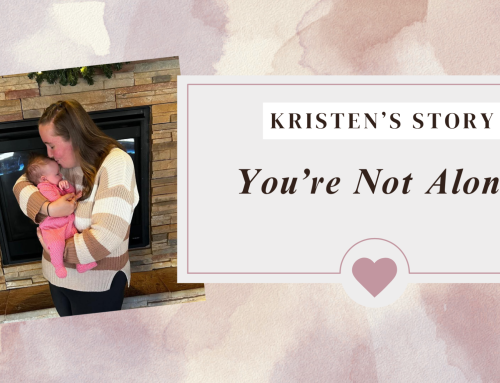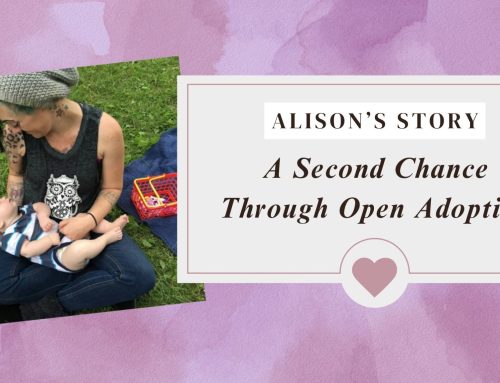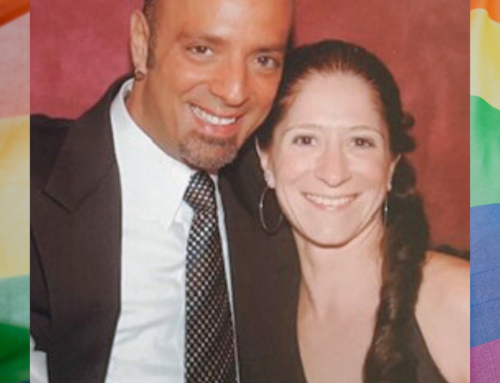Meet Your AFTH Social Workers
As National Social Work Month comes to an end, we want to turn the spotlight on some of AFTH’s amazing social workers. As adoption social workers, they provide birth and adoptive families with comfort and compassion throughout their adoption journey. Day in and day out, they strive to make a difference in others lives, these ladies may not wear a cape, but they are certainly heroes.
Joan, AFTH Pittsburgh
Q: What inspired or influenced you to pursue a career as a social worker?
J: I was always interested in what made people react the way they do to different situations. I wanted to assist people in getting the help they needed, whether it be through counseling or networking with community services. I was appalled to discover how people with mental health issues were discriminated against, especially in our health care system, and I wanted to help.
Q: What does it take to be a good social worker?
J: Besides being compassionate and non-judgmental, one must realize that people come from different backgrounds or perspectives, and the way they deal with things in their life may be very different than how you personally deal with things. Unless you’ve walked in someone else’s shoes, you can never completely understand what another person is going through.
Q: How is an adoption social worker different from other social work specialties?
J: Adoption social workers get to experience one of the most amazing experiences in life—placing a baby with a family who wants nothing more than to be parents. But it is also a very heart-wrenching process at the same time, as the pain and loss that a birthparent feels is unimaginable. We experience both sides of the coin with every placement, so we have to learn to juggle our emotions.
Q: What does a typical day look like for an adoption social worker?
J: A typical day can vary greatly. We may be working on paperwork in the office such as home studies or court reports, but on any given day or night, our phone rings telling us we need to get to the hospital immediately to counsel an expectant parent in labor. We are 24/7 and our schedules can be very unpredictable.
Q: What are the best or most rewarding parts of your job?
J: One of the most rewarding parts of our job is the placing of a child with a family who has been through years of infertility or has lost a child through miscarriage/death. Their world is turned upside down and their greatest desire is to give their unconditional love to a child.
Q: What are the most challenging parts of your job?
J: One of the hardest parts of the job is realizing that you cannot snap your fingers and get everything accomplished that needs to get done in one day. Also, some parts of the adoption process are out of a social worker’s control and we have to learn to roll with the punches sometimes.
Q: Describe what it’s like being a social worker using one word:
J: Fulfilling
Q: What advice would you give to new social workers entering the field?
J: Learn to be flexible and non-judgmental. You can’t change everything, but you can make an amazing difference in many people’s lives.
Meredith, AFTH Cherry Hill (New Jersey)
Q: What inspired or influenced you to pursue a career as a social worker?
M: When I was a child a I had a lot of learning difficulties. I was followed by the child study team and the social workers were all so kind. I told my mom “when I grow up I want to help people like the social workers helped me”
Q: What does it take to be a good social worker?
M: Patience, understanding, and being non-judgmental. As social worker you need to be ready for change immediately and be willing to be flexible.
Q: How is an adoption social worker different from other social work specialties?
M: I feel all social workers are the same in the way or they would not have entered the field. We all have that need to help. However, being an adoption social worker, you need to understand “loss” from each side of the triad, child, adoptive parent, birth parent. If you don’t understand “loss” it may be difficult to do this job. Also, an Adoption Social Worker needs to be flexible with time because your clients need you seven days a week.
Q: What does a typical day look like for an adoption social worker?
M: There is never a “typical day” for an adoption social worker. I could start out my day writing a home study and then be called to the hospital for a placement of an infant. Therefore, this is why I enjoy my job: no day is ever the same.
Q: What are the best or most rewarding parts of your job?
M: The most rewarding part of my job is seeing a complete family and having the entire adoption triad as a complete extended family.
Q: What are the most challenging parts of your job?
M: The most changeling part of my job is when I let things build up and don’t take time for myself. The second part is having to tell an adoptive parent that the placement they thought could be there’s is no longer going to happen. Sometimes finding the appropriate words for the specific client can be challenging, but I manage to do it and know at the end of day; I have helped however -very challenging.
Q: Describe what it’s like being a social worker using one word:
M: EPIC
Q: What advice would you a new social worker coming into the field?
M: Always make time for yourself and take self-care. You won’t be able to focus on your job or task if you are not feeling good about yourself. Also, never be afraid to ask for help because someone is always willing to help you. Always remember you can’t do it alone.
Stephanie, AFTH Central Pennsylvania
Q: What inspired or influenced you to pursue a career as a social worker?
S: I have a cousin who was adopted through Adoptions From The Heart, this was all happening when I was in my senior year of college. My college had an adoption class which I took and it led to an internship with another agency which led me to Adoptions From The Heart.
Q: What does it take to be a good social worker?
S: It takes empathy, dependability, flexibility and some patience! A good social worker can have a conversation with anyone and knows how to build relationships. I try to treat every client as if they were my family.
Q: How is an adoption social worker different from other social work specialties?
S; We wear so many hats compared to other social work specialties. Some days we have to understand what is happening in a medical setting, while other days we are in court and need to understand the law. We have to meet clients where they are at emotionally when they come to us and that can involve using many different counseling strategies. We work with clients who all have the same goal but are traveling different paths and no one person’s journey is the same.
Q: What does a typical day look like for an adoption social worker?
S: There is no typical day! Every day is different. One phone call can change everything.
Q: What are the best or most rewarding parts of your job?
S: Seeing birthparents achieve their goals after making an adoption plan. We are with them when they are making the hardest decision they will ever have to make and to see them be successful and have a wonderful relationship with their birth child and adoptive family is very rewarding. Watching a couple become a family. Some of the best moments are when adoptive families look at you as everyone is leaving the hospital and say “Are we really going home?”.
Q: What are the most challenging parts of your job?
S: One of the challenging parts of the job are not having situations go like you planned for them to go. Learning how to manage the emotional strain that can come with the job of social work is a challenge. We joke that we sometimes we have to be Gumby and having to be pulled into several different directions is not easy. Also, remembering to take time for ourselves and our families. You have to create a balance for yourself.
Q: Describe what it’s like being a social worker using one word:
S: Advocates
Q: What advice would you give to new social workers entering the field?
S: Make sure you are committed to the work. Social work is not glamorous and often we are a forgotten field. Social work is a calling it is not a job that you can go to everyday work your 8 hours and come home. There are times it will encompass every part of you, it will wake you up at 3 am remembering to complete a task and one that will keep you up until 3 am worrying about a client.
Nicole, AFTH Virginia
Q: What inspired or influenced you to pursue a career as an Adoption Counselor ?
N: I knew I wanted to do “Human Services” of some type and completed my degree program internship at Adoptions From The Heart. Through working with all members of the adoption triad during that time, I realized that this was my passion and I wanted to make it a career to facilitate and educate birth parents, adoptive parents, and children through the adoption journey.
Q: What does it take to be a good Adoption Counselor?
N: It takes a continual search for growth, education, and knowledge; we do not have all of the answers and neither does anyone else. It takes honesty and good listening skills, especially in difficult and challenging situations. It takes a non-judgmental attitude and respect for diversity, cultural competency, and education. Flexible and realistic expectations are also important. SELF CARE!
Q: How is an Adoption Counselor different from other social work specialties?
N: Adoption Counseling involves a specific population to include adoptive parents, children who are adopted, birth parents, and all of the respective extended families involved.
Q: What does a typical day look like for an Adoption Counselor?
N: If I am in the office, I am writing dictations for every meeting I have, writing home studies, facilitating education courses, answering emails and phone calls, and participating in staff meetings. If I am on the road, I am doing home visits, options counseling visits, hospital visits, placements, and pre and post-placement meetings. I help coordinate birth parent support groups and adoptive parent education courses; we also organize and facilitate a Fall Festival and Summer Picnic each year for our families.
Q: What are the best or most rewarding parts of your job?
N: Seeing open adoption in action is the most rewarding part of my job; witnessing and facilitating healthy relationships between the adoption triad with the best interest of the child at the center is the most fulfilling. In addition, options counseling with birth parents gives me a glimpse into how courageous and strong they are; making a voluntary adoption plan can not be easy and I feel grateful to hopefully build trust with birth families. I value and respect birth parents and hope to provide them with comfort and knowledge that they can reach out to me in the future..
Q: What are the most challenging parts of your job?
N: It can be challenging to help others grasp a bigger picture of adoption outcomes; children who are adopted may have different perspectives and feelings than their birth and/or adoptive families. We all have different personalities and hopes and fears; we must work together to support children throughout their own feelings. Educating yourself and developing a healthy perspective can help facilitate challenging the assumptions and stereotypes that can surround adoption.
Q: Describe what it’s like being an Adoption Counselor using one word:
N: Fulfilling
Q: What advice would you give to new Adoption Counselors entering the field?
N: Follow your instincts, continue listening and educating yourself, and consult with those who have experience working in the adoption field.
Alyse, AFTH Connecticut
Q: What inspired or influenced you to pursue a career as a social worker?
A: I have known I wanted to be part of a helping profession since going on a mission trip to NOLA to help re-build after Katrina. This experience helped show me that in times of need, people come together to help one another, no matter the circumstances. Seeing so many people working together to help those who needed it most is what inspired me to want to continue helping others in any ways I could.
Q: What does it take to be a good social worker?
A: There are many things that go in to being a good social worker, however I think the most important tools a person can bring to the table are their compassion, empathy, determination, and listening skills.
Q: How is an adoption social worker different from other social work specialties?
A: Adoption is a specialized field, however I would say that every field of social work is different from the next. No two social work jobs/fields are the same, which I think is part of the reason people become social workers in the first place. “Social work” is such a broad term, and there are so many different jobs you can hold within the social work profession. From adoption to health care, human rights services, foreign relations, etc. there’s an infinite number of job possibilities.
Q: What does a typical day look like for an adoption social worker?
A: I think for any social worker, not just an adoption social worker, every day looks different. This is because when you are working with clients you are constantly trying your best to meet their needs, which are ever-changing.
Q: What are the best or most rewarding parts of your job?
A: For me, the best part of this job is getting to see successful open adoptions. When you have both birth and adoptive parents who really believe in open adoption, it can be a beautiful thing. Seeing both birth and adoptive families having healthy, open relationships that revolve around what’s best for the child is the best part of this job to me.
Q: What are the most challenging parts of your job?
A: The most challenging part of this job for me personally is helping birth parents through their grieving process. Often times our birth parents choose to place not because they don’t want to parent, but because they are unable to give their child everything they want them to have in life. Seeing someone who wants to parent, but feels their child would have more opportunities in life if they were placed with an adoptive family, can be heartbreaking.
Q: Describe what it’s like being a social worker using one word:
A: If I had to describe what’s it’s like being a social worker in one word, it would be: Bittersweet.
Q: What advice would you give to new social workers entering the field?
A: For new social workers in the field, I think it’s important to remember that you aren’t going to be able to change the world in a day. But if you can help turn one negative for someone in to a positive, then you’ve succeeded.
Kristin, AFTH Allentown
Q: What inspired or influenced you to pursue a career as a social worker?
K: There is not another career, where you can be so involved in the changing process of not only individuals, families, but the larger community. I truly believe that the career of social work found me. The reason I am drawn to social worker is because I want to empower our communities. Another reason I am drawn to social worker is because you are constantly learning. There is never a time, “where you know it all”, or “you can’t learn anything you don’t already know”. There is something so beautiful and unique about social work, in that we are helping people function in their everyday lives. Something that every individual needs, one time or another in their lives.
Q: What does it take to be a good social worker?
K: I think the most critical component of being a “good” social worker is having the ability to take our own personal judgements, biases, and perceptions about our clients situation and keep it separate from our service to clients. A good social worker can individualize needs to provide the best service to our clients. A “good” social worker takes the time and effort to build a trusting relationship with client, no matter how many obstacles and hours it may take. We do not run away from the unpleasant feelings/discomfort, we dive in. We don’t refer out the moment a client gets too difficult, we ask why and dive in.
Q: How is an adoption social worker different from other social work specialties?
K: Adoption social workers are different in that we are involved in every aspect of our clients lives. We dig into financials, we are available for 18 years for assistance, we work with the adoptive parents and birth parents, we are involved in the court proceedings, ect. Adoption social worker go the extra 5k to ensure clients can create safe environments for our future generations.
Q: What does a typical day look like for an adoption social worker?
A: There is not a typical day for an adoption social worker. Some days are crazier than others, but flexibility is key when working in the field of adoption social work. You can think you are going to have a day to catch up on paperwork in the office, and then your phone rings, and your schedule is filled with counseling and helping a birth mother before she leaves a hospital to choose a family, identify any resources she may need, complete legal documents, notify an adoptive family and guide the adoptive parents through meeting the birth mother, all within the rest of your 8 hour day. There is not a typical day. The typical day is to expect the unexpected and roll with the changes.
Q: What are the best or most rewarding parts of your job?
K: The best part of my job is being able to support individuals with one of the most emotional times of their lives and to see the growth in clients. It is amazing to be able to witness the impact support from a social worker or non-profit agency can provide for individuals when they believe there are no options left. The process of empowering someone, who has never felt empowered, is one of the most rewarding parts of my job. There is strength in all of us, sometimes individuals need help discovering that strength, and to be part of that transformation, is one of the best parts of being a social worker.
Q: What are the most challenging parts of your job?
K: The emotions. We are working with individuals on such a personal level, our emotions always get involved. The hardest part is the emotional toll it takes on your personal life, if you don’t take care of yourself. We bring the emotions home with us, we drive the emotions with us to work, we feel the emotions during our counseling, and just trying to balance emotions with your everyday work. We are humans, working with human’s lives, our emotions are bound to get caught up in the everyday routine of work.
Q: Describe what it’s like being a social worker using one word:
K: Unpredictable
Q: What advice would you give to new social workers entering the field?
K: Be flexible and don’t get discouraged when things don’t go according to planned, get creative.
Lindsay P., AFTH Wynnewood
Q: How long have you been in the social work field?
L: I have been working in this field for the past five years. I started out in foster care and then transitioned into homeless services and working with veterans. After some time, I started to really miss working with children and families, so I decided to try adoption and that brought me to AFTH!
Q: How is working in adoption, different from other areas of social work?
L: It is much happier! So often, people assume that the social work field is depressing and difficult, and to be fair, that is the case at least 75% of the time. But with adoption, we get to see happy endings for our adoptive parents and also empower our birth parents to make such a selfless and difficult decision.
Q: What impact does being a social worker have on your everyday life?
L: Being a social worker means having to juggle your career and personal, everyday life and hope the two never intermingle. I am fortunate that my husband also works in child welfare and understands the demands of this profession, but it can be a struggle to keep work related issues at work. However, being a social worker has also taught me compassion and patience, both of which are incredibly important skills to have in your everyday life!
Q: What is the best part about being a social worker? Are there any difficulties or hard moments?
L: It goes without saying that the social work field has both good and bad moments. Thankfully, the good usually outweighs the bad! I think the best part about this field is the connections you make with your coworkers. Everyone who works in this field has a desire to help others and that helpfulness extends to our peers.
Q: What made you want to pursue a career in adoption social work?
L: After working in foster care, I realized that I loved helping children and families. Making the switch over to adoption was a great move; being able to watch someone turn into a parent, sometimes overnight, is such a wild and heartwarming experience.
Q: Was there a specific area of social work that you first saw yourself working?
L: When I enlisted in the Army in 2012, it was because I wanted to be an Army social worker. However, plans will always change when it comes to the military. I still hope to one day find a position that allows me to combine my passion for child welfare and veteran services along with my love for the military community.





